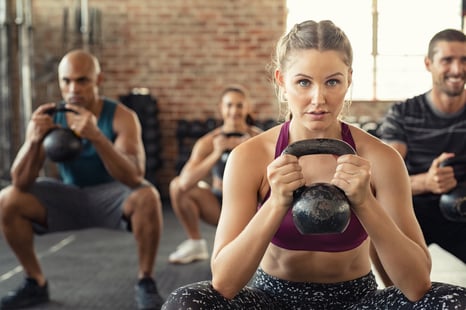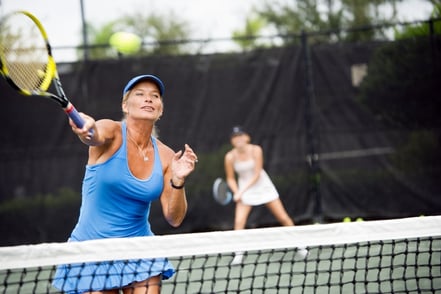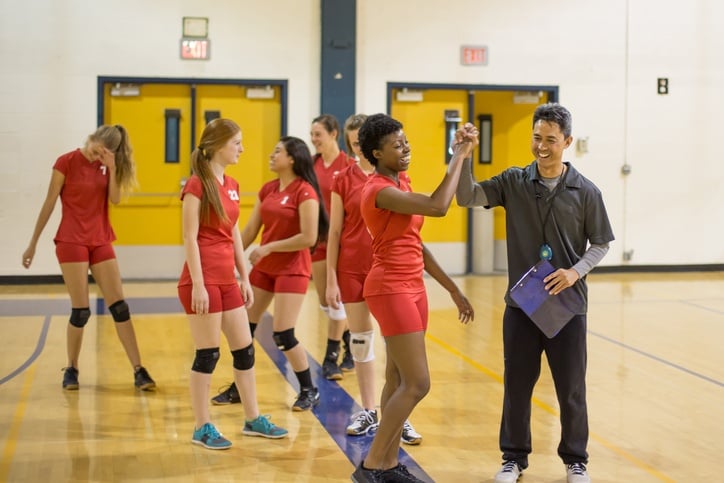 Functional training is an excellent approach for longevity and maintaining a healthy lifestyle and functioning body because it emphasizes movements that mimic activities of daily living, enhance flexibility, and improve overall mobility. In this blog, you will learn about the different functional exercises that can contribute to your longevity, along with their benefits and daily function.
Functional training is an excellent approach for longevity and maintaining a healthy lifestyle and functioning body because it emphasizes movements that mimic activities of daily living, enhance flexibility, and improve overall mobility. In this blog, you will learn about the different functional exercises that can contribute to your longevity, along with their benefits and daily function.
- Squats: Squats, part of the big three essential power lifts, are an ideal functional movement because they mimic the motion of sitting down and standing up repeatedly on a day-to-day basis. The benefits include strengthening the lower body (quadriceps, hamstrings, and glutes) and promoting improvement in ankle and hip mobility.
- Lunges: Lunges are used primarily to replicate the function of climbing stairs, stepping onto or over something, and catching oneself from falling forward or backward. The benefits include strengthening the legs, hips, and glutes, and improving balance and stability.
- Deadlifts: Deadlifts, as another part of the big three essential power lifts, are an ideal functional exercise because they simulate picking things up from the ground safely. This exercise targets the posterior chain, including the lower body, glutes, and hamstrings, which are all activated especially when lifting a heavy object.
- Push-ups: Push-ups are one of the most essential and common movements needed for the ability to lift our body from the ground or external obstacle. This exercise targets muscles of the chest, shoulders, and triceps, thus promoting upper-body function and strengthening.
- Pull-ups (or lat pulldowns): Pull-ups are another essential and common movement for the ability to lift oneself, like climbing a wall. A good alternative exercise is lat pulldowns, which simulate the same function.
One key piece of advice I would offer is to focus on proper form and start with the most appropriate intensity that is necessary for you and your fitness journey. Consistency is key, and as with any exercise program, it’s advisable to ask questions. Always consult the trainers and Health Fitness Specialists at NIFS. We would love to help you improve your form, give you exercise prescriptions, and make your fitness journey as comfortable as possible.
This blog was written by Deveon Martin, NIFS Health Fitness Specialist. To read more about the NIFS bloggers, click here.

 We exercise many ways every day, many times unknowingly. Sometimes this is because we actually enjoy doing it and it doesn’t seem like work to us. As the old saying goes, “time flies when you’re having fun.” One requirement for a lifetime activity, though, is that it most often needs to be something you can do from the time you stop wearing diapers until the time you start wearing diapers again. The ideas I like to explore can include fitness, but also non-exercise–based activities.
We exercise many ways every day, many times unknowingly. Sometimes this is because we actually enjoy doing it and it doesn’t seem like work to us. As the old saying goes, “time flies when you’re having fun.” One requirement for a lifetime activity, though, is that it most often needs to be something you can do from the time you stop wearing diapers until the time you start wearing diapers again. The ideas I like to explore can include fitness, but also non-exercise–based activities.
 For many adults, memories of physical education class are usually one of two greatly different experiences. For me, physical education was the highlight of my day and was never a burden or stressor in my life. For others,
For many adults, memories of physical education class are usually one of two greatly different experiences. For me, physical education was the highlight of my day and was never a burden or stressor in my life. For others,